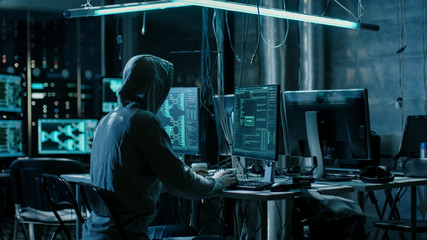10 Ways to Protect Your Devices From Being Hacked | Free Antivirus
Piracy has increased in recent times to illuminate users' data and sell them to third parties in order to obtain money. This confirms the importance of securing data from hacker attacks and protecting privacy on the Internet. Here are the most important steps to achieve this.
1- Install new updates as soon as possible
First and foremost, it is essential to keep the applications and smart devices that you use always up-to-date with the latest versions and firmware. Often, updates include addressing various security vulnerabilities that hackers may exploit to carry out your data breaches.
2- Secure your devices in powerful ways
Surprisingly, at least a third of smartphone users are not interested in using strong passcodes but rather using the simplest four-digit passcodes to secure their devices and access websites. There are many ways to secure and unlock phones, computers, and tablets - biometric methods such as facial recognition, fingerprints, and eyes, as well as the way to use patterns, etc. So you must set up a strong passcode to secure your devices and take advantage of the high-security features that biometric methods provide.
3- Make sure that the firewall is activated on your devices
A firewall is a very important part of protecting your device, even if hackers can penetrate your device and know the location and IP address of your device, the firewall prevents them from accessing the operating system and the network. It is worth noting that modern Windows and Mac systems contain built-in firewalls to identify incoming and outgoing Internet ports.
4- Encrypt your drive
An additional step that you can use to increase security is encrypting your computer's hard drive. With encryption, your data will be converted into an unreadable code that can only be deciphered using a specific key or password.
Windows users can do this by activating the built-in encryption tool BitLocker. BitLocker is available to anyone who has a device running Windows Vista, 7 Ultimate, 7 Enterprise, Windows 8.1 Pro, Windows 8.1 Enterprise, or Windows 10 Pro.
Macs have their own built-in disk encryption tool called FileVault, which helps prevent unauthorized access to your data and provides an extra layer of security in the event your computer is stolen or lost.
5- Do not trust public Wi-Fi networks
Hackers and hackers use public Wi-Fi networks to spy on users who join the network or sometimes create honeypot networks, which are fake networks designed to steal your information.
If you are not careful, hackers will be able to obtain all of your personal data, such as your name, address, social security number, email address, usernames, and passwords, while you are using a public Wi-Fi network in the coffee shop you are visiting.
This is why it is imperative that you use a virtual private network (VPN) when you are in public places. It's a good idea to use one at home, too. By using a VPN, your device's IP address will be hidden from the websites and services that you visit and you can browse them anonymously.
6- Wipe your data from old devices that you will get rid of
It is known that wiping data and files from devices by traditional methods do not guarantee their final disposal, because there are many methods and programs that help to retrieve them even after a lot of time has passed after deleting them if you want to be serious about your security and avoid hacker penetration, then you need to Erase sensitive data forever, by using programs like Eraser or Blank and Secure for Windows or Secure Delete - File Shredder for Macs.
There is also the popular CCleaner program that can be used to permanently delete files on Windows PCs and Macs.
7- Make sure to use strong passwords for your online accounts
Your password is the first line of defense, so be sure to set up a safe and unique password for each account. If you feel difficult to deal with too many passwords or want to develop more difficult passwords, you can use Password Manager, a program that can store Passwords and manage them for every app, service, or website you use, as it's like a locked locker on all your passwords.
8- Use two-factor authentication
2FA is a great way to use an extra verification step to sign in for your most important accounts. Instead of providing the username and password only to log in to an account, a different new code is sent to your phone for you to use every time you log in to your account.
9- Make sure to use the guest network option
Friends and family always want to use your Wi-Fi network when you visit, so instead of using your own network that all of your devices are connected to, you can assign them a private network in the router, which is known as the guest network.
This feature allows you to share your internet connection with your guests while keeping them outside your primary network, which prevents them from seeing shared files and services, so set up your guest network with a different network name and a different, strong password.
10- Choose the appropriate account type
When you set up a computer for the first time you create at least one user account. If multiple people are using a computer, you can create an account for each of them.
User accounts are important because they separate your files from the rest of the users and this is good for privacy and security as long as each account has its own password. However, what many users don't know is that there are multiple types of accounts that you can create. The two main types are Administrator and Standard. You will need to verify user accounts immediately and change any Administrator accounts to Standard accounts. free antivirus to protect your pc.




Comments
Post a Comment